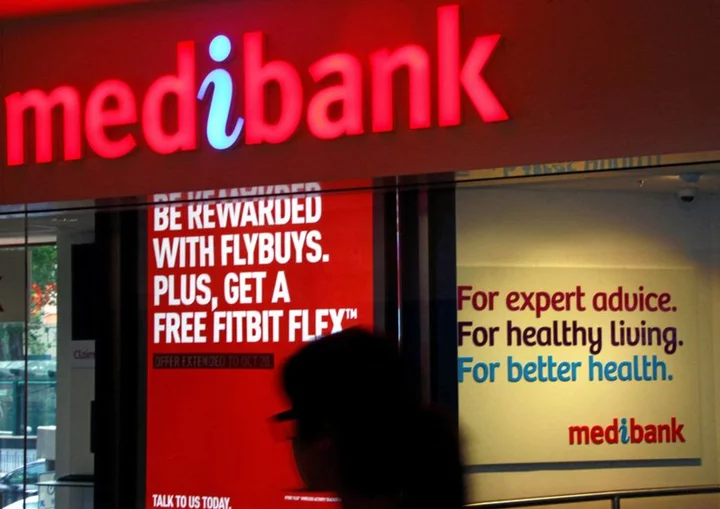
Australia regulator tells Medibank to set aside $167 million after data breach
SYDNEY (Reuters) -Australia's banking regulator told insurer Medibank on Tuesday it would have to set aside A$250 million ($167 million)
2023-06-27 07:27
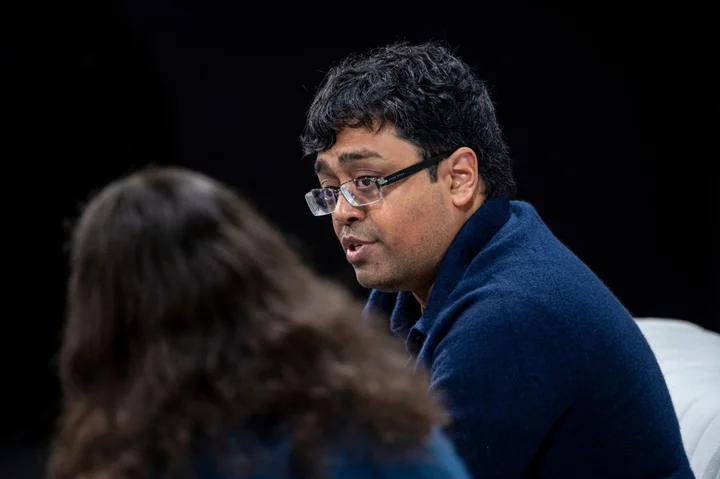
Stability AI Head of Research Resigns From Startup
Stability AI, the closely watched artificial intelligence startup, has lost at least two top executives in recent weeks,
2023-06-27 06:58
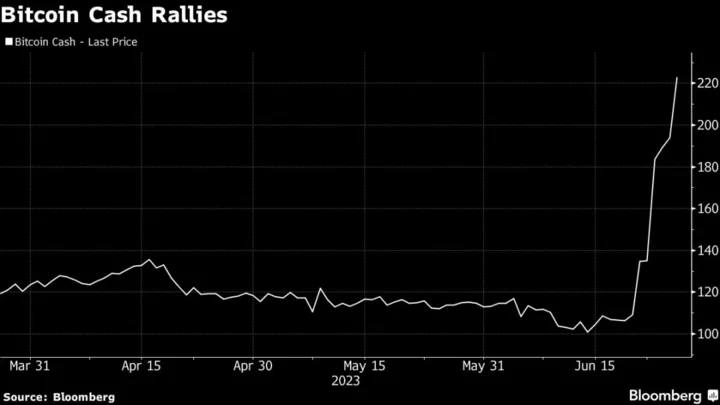
Bitcoin Offshoot Has More Than Doubled Over The Last Week
Bitcoin Cash, one of the early offshoots of the original digital currency, has more than doubled in value
2023-06-27 06:49

Post founder Noam Bardin is on a mission to reinvent social media and break Big Tech’s destructive dominance
From fuelling genocide in Myanmar, kowtowing to authoritarian regimes and causing an epidemic of depression among teenagers, Noam Bardin has watched aghast as the platforms that promised to bring people closer together tore at the connective tissue of society. “Social media has become the worst of us”, the serial tech entrepreneur tells The Independent in an interview. “That’s by design. It’s not a bug, it’s a feature.” So he decided to build his own, Post, with a vision to reinvent the relationship between social media, its users and news publishers. Post launched in the App Store on 15 June, one of a number of start-ups vying to usurp Twitter as it lurches through a series of crises. Post’s soft launch When Twitter imploded last October during Elon Musk’s tortuous $44bn takeover, a flood of high-profile users announced they were ditching the site. Mr Bardin spotted an opportunity, and decided to rush Post into beta testing. He soon had more than 350,000 people on a waiting list, and initially allowed around 65,000 users onto the site. Mr Bardin said the decision to launch and capitalise on the chaos at Twitter may have been premature, but it allowed him to iron out flaws and convince news outlets that the app’s profit-sharing model could work. “Once we came out, suddenly, publishers were willing to come on board.” Mr Musk’s ownership has been plagued by a series of erratic decisions, including firing content moderators, promoting conspiracy theorists, declaring war on what he calls the “woke mind virus”, and using it as a tool to boost his own profile. The billionaire may not have been the cause of all of Twitter’s woes, but he certainly hasn’t helped, says Mr Bardin. “Twitter was a sick company before. It didn’t have a good business model. It couldn’t afford what it was doing. It didn’t provide value for the creators, and the toxicity was off the charts, right? “All these are kind of assuming that Twitter was an amazing, healthy company before Elon Musk came? Elon Musk obviously did his bit to destroy it.” Mr Musk’s belief that he could run a social media company was typical of the attitude among Silicon Valley venture capitalists, he said. “Silicon Valley is full of really, really smart people who have accomplished tremendous things. And because of that, they assume they can do anything and accomplish anything,” Mr Bardin said. “They like to talk about diversity, and they have diversity of people in terms of their backgrounds, skin colour and race, but everyone has exactly the same engineering MBA from Stanford or somewhere else.” Mr Bardin says he didn’t believe Twitter would ever disappear entirely, but that its profits and trustworthiness will continue to crater as users grow tired of Mr Musk’s antics. Post will inevitably draw comparisons to Twitter, but Mr Bardin sees it more like TikTok, a disruptor that exists alongside and improves an existing idea. ‘Ultimate product person’ Mr Bardin, 52, became a billionaire overnight when he sold his crowdsourced navigation app Waze to Google in 2013, After seven years as a vice president of product at Google, Mr Bardin quit suddenly in 2021. In a blistering farewell post, he wrote that the company mollycoddled its “entitled” employees who were more concerned with personal fulfillment and their 11am yoga classes than the products they worked on. Post was initially entirely self-funded by Mr Bardin. When he unveiled the app in November, he announced that Silicon Valley venture capitalists Andreessen Horowitz, which manages $35bn in assets, had come on board. Post’s only other investor is Scott Galloway, the author, podcast host and professor of marketing at New York University, who has said he invested “substantial personal capital” in the project. The partnership came about after the pair hit it off when Professor Galloway had the entrepreneur as a guest on his podcast. Professor Galloway, an outspoken critic of tech titans including Mr Musk, told The Independent in an email that he was convinced to invest in Post after hearing Mr Bardin’s vision to reimagine social media as a force for good. “From the outset, Post has been committed to healthier online conversation,” Professor Galloway said. “Elon’s mission, as evidenced by his relentless s***posting and public disdain for our elected leaders, appears to be the opposite.” Professor Galloway described his partner as “the ultimate product person”, a necessity going up against behemoths that invest billions in “keeping eyeballs glued to the screen”. “However, there’s another side to running a business in social, which Noam understands deeply — and that’s mission. “Specifically, what value are you providing to enhance societal discourse such that we can engage in truthful and respectful debate? Most social media companies are sorely lacking in this area, because the ad-based model forces their algorithms to value clicks and engagement over good-faith contributions to public discourse.” Professor Galloway said Mr Bardin was a “rare innovator who hasn’t made the mistake of believing his own press”. “He puts the product and the consumer before his own vanity, and that’s rare in tech these days. We need more leaders like that.” Mr Galloway’s Pivot podcast co-host Kara Swisher is also an adviser on the start-up, helping Mr Bardin connect with publishers. It’s the first time that Ms Swisher, a powerful figure in tech journalism for decades, agreed to help out an entrepreneur, such is her belief in the product. How Post works Post allows users to toggle between three feeds: following, explore and news. Users can follow individuals and topics they are interested in, create their own posts, like and repost other content. When users click on an article, it displays within their feed, rather than taking them through to a news site. For that, users are charged a micropayment of a few cents from their digital wallet, which goes directly to the publisher. More than 30 news organisations, including The Independent, The New Yorker, The Boston Globe, San Francisco Chronicle, Reuters and ProPublica, have already signed on as publishing partners. Mr Bardin explains that Post is pioneering a new business model that allows users to find and pay for reliable news. Since the dawn of the internet, media companies have missed “every opportunity” to carve out a slice of profits for themselves, he says. “They’ve been screwed by every tech platform.” He believes that the central idea to fixing social media is rebooting the relationship with news publishers. On Post, publishers can set the price of their content — usually a few cents per article. “We hope that we’ll have the critical mass on our platform that will give that breaking news from everywhere,” Mr Bardin says. “But we think that includes premium publishing, and newsletter writers and experts and creators. There’s a whole slew of new entities who are creating newsworthy content and want to be able to host it all.” A network of journalists, influencers and newsletter publishers including Dan Rather, George Takei and Robert Reich were early adopters of the platform. While keen to reimagine what social media can look like, Mr Bardin says his larger goal is to create a better informed society through promoting reliable information. He sees the rise of authoritarianism in his home country of Israel, Hungary, Poland and the United States as an existential threat similar to the climate crisis. “Americans like to think that Trump is a unique phenomenon. He’s not, he’s part of this wide agenda of authoritarians. And authoritarian regimes have never delivered the goods over time,” he says. “Putting aside global warming, which is the hardware problem, to me authoritarianism is the software problem.” Professor Galloway agreed that the social media giants had failed in their obligations not to “mess up” democracy. “In many cases, they intentionally look the other way and play dumb such that they don’t have to do the hard work of actually dealing with these issues.” Mr Bardin tells The Independent that he would never have caved to Turkish president Recep Tayyip ErdoÄŸan’s request to censor opposition parties ahead of recent elections. He expects to “have a problem” in India, where the party of prime minister Narendra Modi has made similar requests targeting political opponents, and accepts that Post will likely never be able to operate in China or Russia. “I find it very disheartening when I see so many American companies basically getting on their knees and removing any kind of moral in Western liberal value to try and operate in these countries. You have to be able to stand for something and if it means you lose a market, you lose a market. “Part of the problem is, the Second World War was a long time ago. So we forgot what the world used to be like. And so we’re allowing ourselves now to go down these paths that we know are terrible. “There are a million reasons for this, not just social media, but social media is one of them and it’s the place where I think I can make an impact,” he said. “I’m 52, this is my last company, and this is something I want to do for the next few decades. It’s something I think is super important.” Content moderation Mr Bardin sees Post’s content moderation being driven by the community, with good behaviour being rewarded, while trolls will be aggressively suspended and removed. The more you play by the rules, the more reach your content will receive. “And the more we’re gonna trust you on the platform, while being very aggressive on removing and suspending people that are just there to troll others.” He cites the genocide of Rohingya Muslims by the military dictatorship in Myanmar in 2016 and 2017 as a prime example of how big tech has failed. Facebook, the primary source of news in the country, allowed anti-Islamic hate speech to spread unchecked, which a United Nations Independent International Fact-Finding Mission found played a “determining role” in the massacre, rape and displacement of hundreds of thousands of people. “There’s no way that the moderator sitting in a call center in the Philippines will understand the Buddhist verse Muslim animosity in Myanmar. You can’t expect them to ever reach that level of understanding, but everyone in Myanmar understands it,” he said. Building a community to self-police bad behaviour and set its own standards would be key to Post’s success, he added. “We’re the platform for the 85 per cent of people who are not crazy, who want to get their news, get some opinions and say something, but don’t want to be called a fascist or communist.” Read More Elon Musk vs Mark Zuckerberg: Who would win a fight between tech titans? Inside the final days of Twitter 1.0: How Elon Musk razed us to the ground RFK Jr compares Elon Musk to American revolutionaries during conspiracy-driven Twitter event Four people were just locked inside a fake Mars habitat for a year-long study Apple releases urgent update to iPhone and iPad users Twitter hacker who took over Musk, Obama, Biden accounts gets prison sentence
2023-06-27 05:50
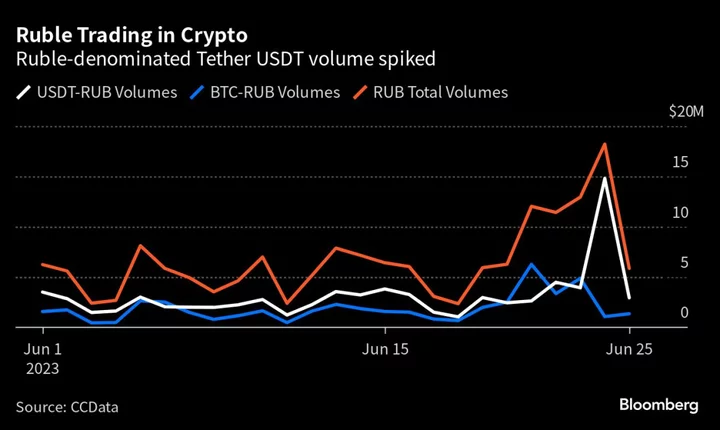
Russians Appeared to Seek Refuge in Crypto During Wagner Revolt
Russians appeared to have sought to exchange rubles for the crypto stablecoin Tether as a refuge during the
2023-06-27 02:59
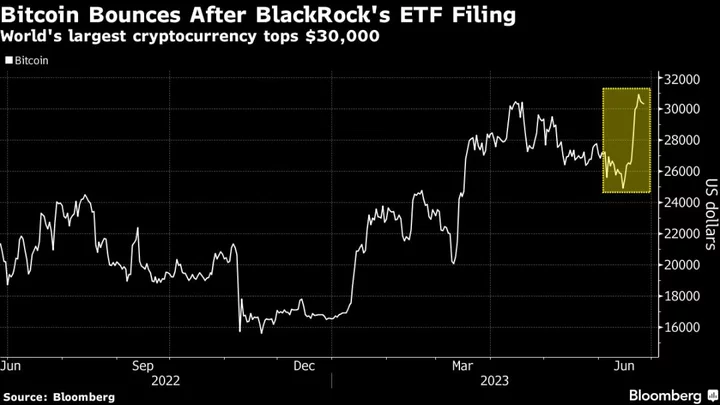
Cathie Wood’s ARK Says It’s First in Line for Spot-Bitcoin ETF
Cathie Wood’s ARK Investment Management says it’s first in line to get potential approval for a spot-Bitcoin ETF,
2023-06-27 01:58
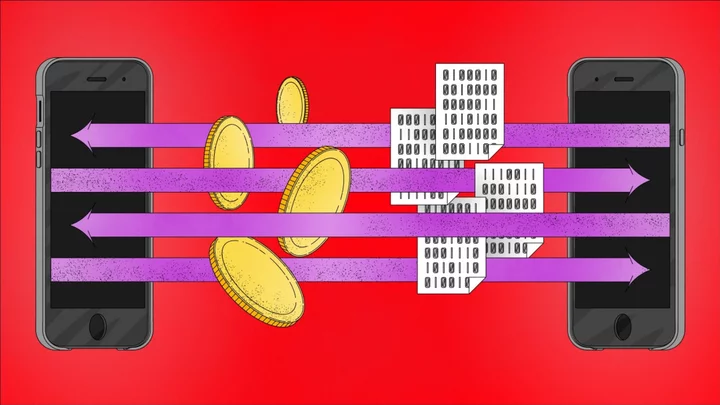
Crypto Exchange Huobi Delists Tokens Using Justin Sun’s Tron Stablecoin
Crypto exchange Huobi Global Ltd. said it will remove 10 “trading pairs,” primarily ones involving tokens used in
2023-06-27 01:21
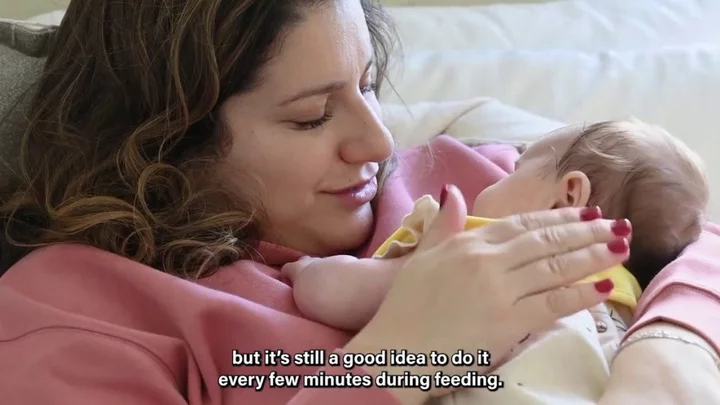
Human babies can be born with 'tails' – and it's not a cute quirk of evolution
How would you feel if you gave birth to a beautiful newborn, only to clock they have a tail? It sounds outlandish, but it can happen in very rare cases when humans can be born with these boneless rear-end appendages, which are sometimes up to 18 centimetres long. To date, official records have tallied about 40 babies born with these 'tails' which are easily removed through surgery. So how does it happen? Experts used to think the tails were evolutionary accidents, leftovers from our primate ancestors. Sign up to our free Indy100 weekly newsletter But thanks to research, experts have realised they probably come from an incomplete fusion of the spinal column, or what's known as a spinal dysraphism. Human babies that are born with tails tend to have serious associated neurological defects. In 2008, a paper argued that "true vestigial tails are not benign" because they may be associated with underlying dysraphism. Roughly half of the cases reviewed were associated with either meningocele or spina bifida occulta. So it is not just a harmless evolutionary quirk after all, but more research needs to be done, scientists say. Have your say in our news democracy. Click the upvote icon at the top of the page to help raise this article through the indy100 rankings.
2023-06-27 00:20
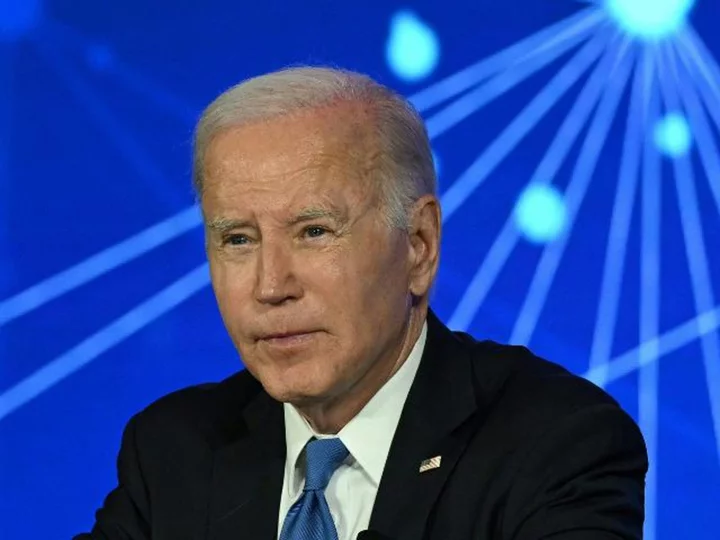
Here's how much each state will get in the $42.5 billion broadband infrastructure plan
The Biden administration on Monday outlined how states across the country will be receiving billions of dollars in federal funding for high-speed internet access, highlighting the US government's push to bring connectivity to more Americans and to close the digital divide.
2023-06-27 00:16
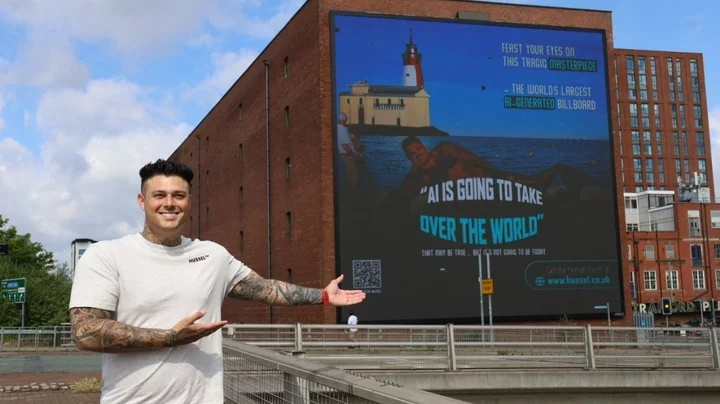
Former Apprentice star bares all in ‘world’s largest AI-generated billboard'
A man known for flying 4,000 miles to track down a thief who stole his AirPods is at it again – and this time, he’s baring all. With artificial intelligence technology on the rise, former Apprentice contestant, Lewis Ellis, is on a mission to find out if robots are going to come for our jobs. In a bizarre experiment, the 32-year-old, who is no stranger to unusual projects – having previously auctioned off his bum cheek for the highest bidder to choose a tattoo – he used ChatGPT to re-create an image for a billboard. And the result is hilarious. The giant billboard, featured at Victoria Warehouse in Lewis' hometown of Manchester, shows the entrepreneur stark naked – as a mermaid. Sign up to our free Indy100 weekly newsletter He used the famous Burt Reynolds Cosmo centre-fold for the main image and asked ChatGPT to “create the content”. ”Whatever it creates, that goes live,” Lewis says in a YouTube video. “I’m not sure if it’s is a good idea, I’m not sure if it’s going to be a complete waste of time but I guess we’ll find out.” Measuring in at 17.6m x 17.4 billboard, it is believed to be the second largest in Europe – however Lewis believes it is the “world’s largest AI-generated billboard. The Apprentice star photoshops his face and tattoos onto the nude Reynolds. The billboard went live at 9am on Wednesday (21 June) and… it’s definitely interesting. Lewis said: ”I was silly to assume that AI would pull it together for me – I won’t really have to do much. ”Turns out it's way harder than I thought. ”And it looks so bad.” The sorry-looking AI generated advert morphed the image of Lewis and Burt Reynolds into the sea creature. In the background, there is a cartoon drawing of a lighthouse and beach. The sign reads: “Feast your eyes on this tragic masterpiece. ”The world’s largest AI-generated billboard. ”AI is going to take over the world. ”That may be true… but it’s not going to be today.” The billboard ad is a recreation of his company, Hussel Marketing’s previous marketing campaign. Lewis took his inspiration for the experiment from the likes of McDonald's, Burger King and Subway, with the brands using ChatGPT for recent ads. To make it even harder, he gave himself just 24 hours to complete the challenge. The entrepreneur certainly isn’t shy in pushing the boundaries of what is possible and using technology to do so. In the past, he has shelled out £2,300 on flights, accommodation and food to fly 4,000 miles to track down his headphones, saying his mum describes him as “mental”. He told Jam Press: “We had no real plan but just hoped to find them again. “The fact you can track tiny headphones around the world is unbelievable. “I didn’t really expect to get them back and I joked that flying to Doha to get them is the pettiest thing I’ve ever done. “But it’s just great that we managed to find them – and now I don’t need to buy a new pair!” What does the marketing guru have up his sleeve next? It’s anyone’s guess. But one thing is certain – AI bots aren’t going to take over his job just yet. Have your say in our news democracy. Click the upvote icon at the top of the page to help raise this article through the indy100 rankings.
2023-06-26 23:29
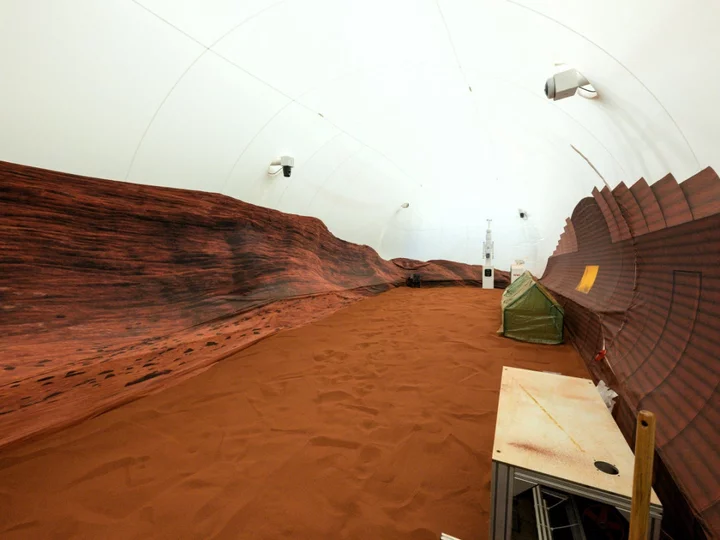
Nasa locks four people inside fake Mars habitat for year-long study
Four volunteers have entered a simulated Mars habitat as part of a year-long Nasa experiment to test astronauts’ resilience to isolation and other psychological stress factors. The CHAPEA (Crew Health and Performance Exploration Analog) mission will see the participants live and work in a 158-square-metre (1,700-square-foot) habitat at Nasa’s Johnson Space Center in Houston, Texas. It is the first of three one-year simulated Mars missions, which each aim to assess the health and performance of crew members when living in confinement with limited resources. Participants will take part in simulated spacewalks, science experiments and habitat maintenance, while also attempting to grow crops for food. “The simulation will allow us to collect cognitive and physical performance data to give us more insight into the potential impacts of long-duration missions to Mars on crew health and performance,” said Grace Douglas, CHAPEA principal investigator. “Ultimately, this information will help Nasa make informed decisions to design and plan for a successful human mission to Mars.” The four members of the CHAPEA mission are research scientist Kelly Haston, structural engineer Ross Brockwell, emergency medicine physician Nathan Jones and microbiologist Anca Selariu. Each were chosen after Nasa put out a call for “healthy, motivated” applicants in 2021. There have been several previous research projects involving simulated Mars habitats, with the Mars-500 missions between 2007 and 2011 seeing volunteers spend months locked inside a facility in Mosco, Russia. The HI-SEAS program in Hawaii also saw participants spend time living in isolation, though one mission lasted just four days after one of the crew members suffered an electric shock. Nasa plans to return humans to the Moon within the next three years as part of its Artemis missions, which the US space agency hopes to use as a foundation to eventually send astronauts to Mars. Private space firm SpaceX also plans to send people to Mars aboard its Starship rocket, which is currently under development at the company’s Starbase facility in Texas. SpaceX boss Elon Musk said a second attempt at an orbital flight test will be made before the end of August, after the first attempt in April ended in a large explosion just minutes after take off. The 480 million kilometre (300 million mile) journey to Mars is expected to take around seven months, with the planet’s orbit meaning that a travel window only opens up every 26 months. This means that any return mission would likely take close to four years to complete. Read More Elon Musk to launch biggest ever rocket after dramatic failure Elon Musk eyes ‘highly habitable’ planet that’s ‘practically next door’ Elon Musk eyes ‘highly habitable’ planet that’s ‘practically next door’ Apple releases urgent update to iPhone and iPad users Twitter hacker who took over Musk, Obama, Biden accounts gets prison sentence
2023-06-26 23:27

Canada Wildfire Smoke Crossed the Atlantic to Cover Parts of Europe
Smoke from wildfires in Canada has traveled over 2,000 miles across the Atlantic Ocean to cover the skies
2023-06-26 23:25
